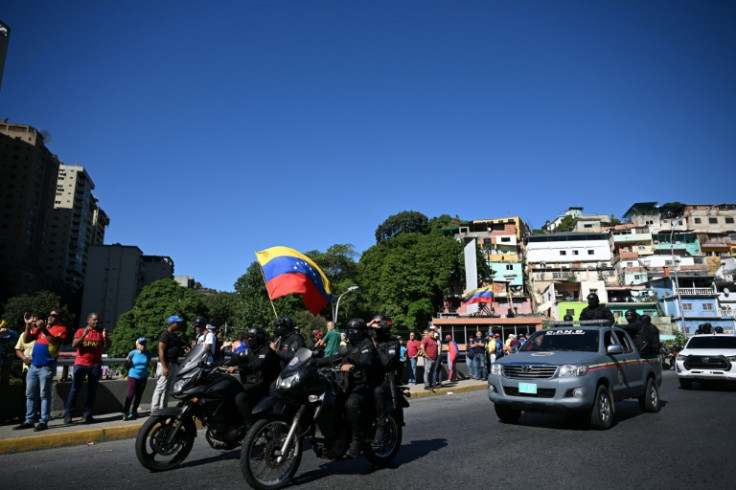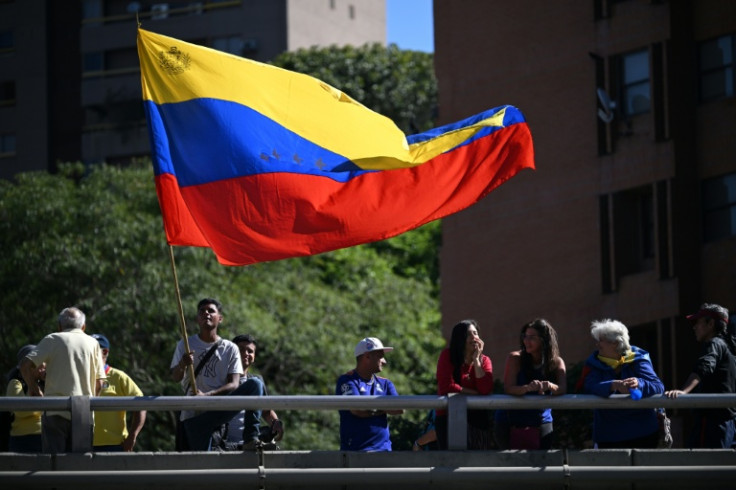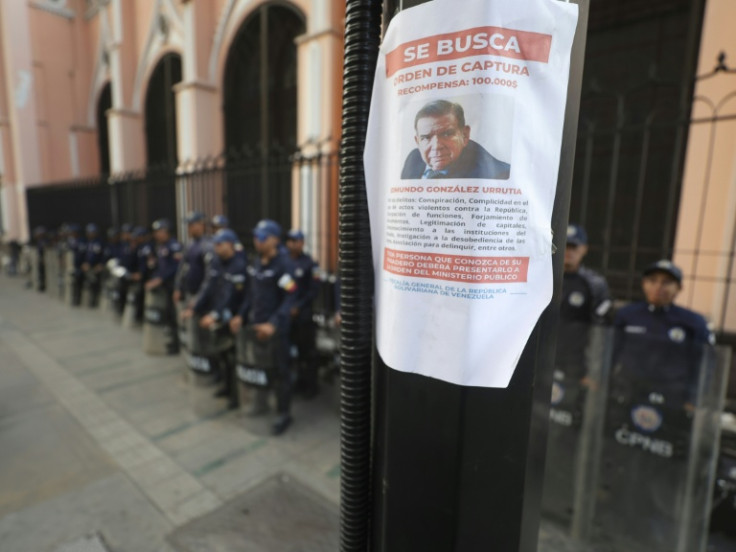
Opponents of Venezuela's Nicolas Maduro took to the streets Thursday in a last-ditch protest against his swearing-in for a third six-year term as president.
After a July election that many believe was stolen, hundreds of opposition supporters began gathering in Caracas on the eve of his planned inauguration.
Opposition leader Maria Corina Machado, who has vowed to come out of hiding to lead the protests, has called for Venezuelans to turn out in their "millions."
She hopes to end a quarter century of military-backed rule that began with Maduro's late mentor Hugo Chavez.
"Get out and leave the country in peace" read one Caracas protestor's placard.
Maduro has swatted away the pressure to cede power and warned that "fascists" who try to prevent his inauguration will be severely dealt with.
Maduro's loyal supporters are holding a rival demonstration in Caracas, setting the stage for a repeat of post-election violence that saw 28 killed, hundreds wounded and thousands jailed.
Much will now depend on how many anti-government protestors are willing to risk a confrontation with heavily armed security forces.
Pro-Maduro police and other security service have locked down key parts of the capital and have previously been willing to brutally suppress pro-democracy protests.
But 70-year-old Rafael Castillo said he would risk his safety to see Maduro ousted.
"I will leave my skin on the asphalt for my children, but it will be worth it because Venezuela will be free" he told AFP.
In the run-up to his inauguration Maduro has accused his old foe, the United States, of plotting to overthrow him.
He claimed that among a group of seven "mercenaries" arrested this week there was one senior FBI official.
The State Department said allegations of US involvement in a plot to overthrow Maduro were "categorically false."
Maduro has ruled Venezuela since 2013 and despite a sustained economic crisis that has seen seven million citizens leave the country, he shows no intention of relinquishing power.
Pro-government militiamen paraded in Caracas this week brandishing Russian-made assault rifles and on Wednesday, about 3,000 pro-Maduro bikers roared around the capital, horns blaring.
Ahead of the protests, several activists and opposition figures, including a politician who ran against Maduro in July were reported arrested.
Writing on X, United Nations rights chief Volker Turk said he was "deeply concerned" at reports of "arbitrary detentions and intimidation."
Exiled presidential candidate Edmundo Gonzalez Urrutia this week visited the White House and toured Latin American capitals in an effort to up pressure on Maduro to relinquish power.
The United States and several Latin American countries have recognized Gonzalez Urrutia as the legitimate winner of July's election.
In Washington he met outgoing US President Joe Biden, who backed a "peaceful transfer back to democratic rule" as well as members of President-elect Donald Trump's team.
Gonzalez Urrutia had at one point suggested he might fly back to Caracas to try to take power.
In a sign of the fate that awaits him if he does, "Wanted" posters offering a $100,000 government reward for his capture were pasted on street signs around the capital.
With neither the charisma nor the flush oil revenues of his mentor Chavez, Maduro is accused of relying on brute force to hold on to power and of driving the economy into the ground.
Maduro never produced detailed election results to prove his victory.
Only a handful of countries, including perennial Venezuela allies Russia and Cuba, have recognized his reelection.
The opposition said its tally of results from polling stations showed Gonzalez Urrutia winning by a landslide.
The last presidential election in 2018 was also marred by fraud allegations.
Attempts by Trump to force Maduro out during his first term as US president by recognizing a parallel opposition-led government and imposing sanctions on Venezuela's oil sector came to naught however.










